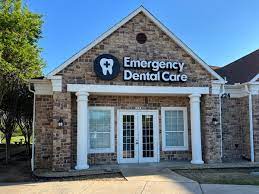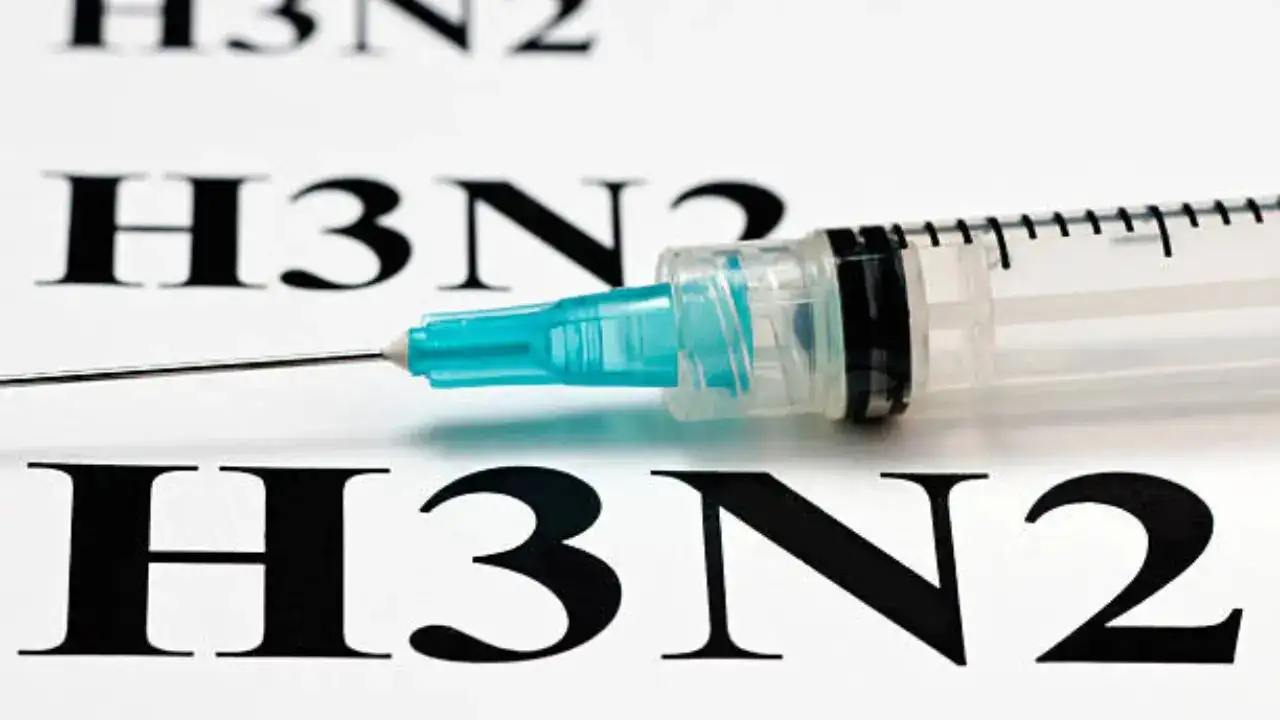Emergency Dental Care USA: Your Guide to Quick Relief
When tooth pain strikes or a dental emergency catches you off guard, knowing where to turn for prompt care is crucial. In the United States, emergency dental care services are readily available to provide immediate relief and address oral health issues swiftly. This guide will walk you through what constitutes a dental emergency, the actions to take in urgent situations, and how to find reliable emergency dental care in the USA.
What Constitutes a Dental Emergency?
Not all dental problems require immediate attention, but some situations demand urgent care to prevent further complications. Understanding what constitutes a dental emergency can help you act swiftly and seek the appropriate care. Common dental emergencies include:

Severe Toothache
A persistent, severe toothache could indicate an underlying issue such as an infection or dental abscess. Don’t ignore intense or prolonged tooth pain; it may require immediate attention.
Knocked-Out Tooth
Accidents happen, and a knocked-out tooth is a clear dental emergency. Handling the situation correctly can increase the chances of saving the tooth.
Broken or Chipped Tooth
A fractured or chipped tooth can be painful and expose sensitive dental pulp. Seek immediate care to prevent infection and restore the tooth’s integrity.
4. Dental Abscess
An abscess is a pus-filled sac caused by a bacterial infection. It can lead to severe pain and swelling and requires prompt treatment to prevent the infection from spreading.
Lost Dental Crown or Filling
If a dental crown or filling comes loose or falls out, it exposes the vulnerable tooth underneath. Seek urgent care to protect the tooth and prevent further damage.
Finding Emergency Dental Care in the USA
Locating reliable emergency dental care services in the United States is crucial for timely treatment and relief from dental issues. Here are effective ways to find the assistance you need:
Local Dental Clinics
Start by searching for local dental clinics or offices that offer emergency services. Many dental practices designate specific hours for dentists to handle urgent cases.
Make phone calls to nearby clinics and inquire about their availability for dental emergencies. Explain your situation to receive guidance on the next steps.
Emergency Dental Hotlines
Some areas have dedicated emergency dental hotlines that can connect you with available dentists or clinics in your vicinity.
These hotlines often operate 24/7, making them a valuable resource for late-night or weekend emergencies.
Online Search and Review Platforms
Utilize online search engines and review platforms to search for “emergency dental care near me.” Major search engines often display local listings with user ratings and reviews.
Read reviews from previous patients to gauge the quality of service provided by each dental practice.
Recommendations from Friends and Family
Reach out to friends, family members, or colleagues who may have experienced dental emergencies in the past.
Personal recommendations can lead you to trustworthy dental professionals who offer emergency services.
Dental Insurance Provider
Contact your dental insurance provider for a list of in-network dentists who provide emergency care.
This ensures that you receive the benefits of your dental insurance plan while seeking immediate treatment.
Online Directories
Explore online directories specifically designed for locating emergency dental care providers in your area.
These directories often provide essential details, including office hours and contact information.
What to Expect During an Emergency Dental Visit
When you arrive at an emergency dental care facility in the USA, you can expect a few key steps to ensure swift and effective treatment:
Evaluation and Assessment
The dentist will conduct a thorough evaluation of your dental emergency. This may include X-rays to assess the extent of damage or infection.
They will ask about your medical history and any underlying conditions or allergies to ensure safe treatment.
Pain Management
Immediate pain relief is a top priority. The dentist will take measures to alleviate your discomfort, which may include local anesthesia or other pain management techniques.
Treatment Plan
Based on the evaluation, the dentist will discuss a treatment plan with you. They will explain the necessary procedures, associated costs, and any potential follow-up care.
You will have the opportunity to ask questions and provide consent before treatment begins.
Dental Procedures
The dentist will perform the necessary dental procedures to address your emergency, whether it involves tooth repair, extraction, or infection management.
During this time, you can expect attentive care to ensure your comfort throughout the process.
Aftercare Instructions
After completing the procedures, the dentist will provide clear aftercare instructions. This may include guidance on pain management, oral hygiene, and any prescribed medications.
Follow these instructions diligently to support a swift and successful recovery.
Follow-Up Appointments
In some cases, follow-up appointments may be necessary to monitor your progress and ensure that your dental emergency has been fully resolved.
Schedule and attend these appointments as advised by the dentist.
Preventing Dental Emergencies
While immediate dental care is essential during emergencies, taking preventive measures can significantly reduce the risk of dental crises. Here are important tips to help you safeguard your oral health:
Maintain Good Oral Hygiene
Brush your teeth at least twice a day using fluoride toothpaste.
Floss daily to remove plaque and food particles between teeth.
Consider using an antimicrobial mouthwash as part of your oral hygiene routine.
Wear Mouthguards
If you participate in contact sports or activities that pose a risk of dental injury, wear a custom-fitted mouthguard.
Mouthguards provide crucial protection for teeth and reduce the risk of injuries like knocked-out or broken teeth.
Avoid Chewing Hard Objects
Refrain from using your teeth to open packages, crack nuts, or bite on hard objects like ice or pens.
Such habits can lead to chipped or fractured teeth.
Regular Dental Check-ups
Schedule regular dental check-ups and cleanings with your dentist. These appointments allow for the early detection of dental issues and preventive measures.
Address Dental Issues Promptly
Don’t ignore dental problems such as cavities or gum disease. Address them promptly to prevent them from worsening into emergencies.
Limit Sugary and Acidic Foods
Reduce your consumption of sugary and acidic foods and beverages. These can contribute to tooth decay and enamel erosion.
Be Mindful of Dental Appliances
If you wear braces or other dental appliances, follow your orthodontist’s instructions carefully to avoid damage.
Maintain a Healthy Lifestyle
A well-balanced diet and proper hydration support overall oral health.
Avoid smoking and limit alcohol consumption, as they can contribute to dental issues.
By incorporating these preventive measures into your daily life, you can minimize the risk of dental emergencies and maintain a healthy smile.
Frequently Asked Questions (FAQs) About Emergency Dental Care in the USA
1. What qualifies as a dental emergency in the USA?
A dental emergency in the USA typically includes situations such as severe toothache, knocked-out teeth, dental abscesses, and serious oral injuries. Any condition causing severe pain or risking further harm should be considered an emergency.
2. How soon should I seek emergency dental care?
It’s crucial to seek emergency dental care as soon as possible. Delaying treatment can lead to complications and increased pain. Most dental clinics offering emergency services aim for same-day appointments.
3. Are emergency dental services available during weekends and holidays in the USA?
Yes, many dental clinics and practices provide emergency services during weekends, holidays, and outside regular business hours. Be sure to call ahead and check their availability.
4. How much does emergency dental care cost in the USA?
The cost of emergency dental care can vary widely based on the specific treatment needed, your location, and your dental insurance coverage. Contact the dental clinic for cost estimates and insurance information.
5. Do I need dental insurance for emergency care?
While dental insurance can help cover the cost of emergency dental care, it’s not always required. Many clinics offer affordable options for uninsured patients and may accept payment plans.
6. What should I do if I can’t reach an emergency dental clinic immediately?
While waiting for dental care, you can manage pain with over-the-counter pain relievers, keep a knocked-out tooth moist in milk or saliva, and avoid hot or cold foods that could worsen sensitivity.
7. Can I visit an emergency room for dental emergencies in the USA?
Emergency rooms can provide initial pain relief and evaluation, but they may not offer comprehensive dental care. It’s advisable to seek treatment from a dentist for long-term solutions.
8. How can I find an affordable emergency dental clinic near me?
To find affordable options, consider checking with local dental schools, community health clinics, or nonprofit organizations that offer reduced-cost dental services. Online search engines can also help locate nearby clinics.
9. What should I bring to an emergency dental appointment?
When visiting an emergency dental clinic, bring your photo ID, dental insurance information, a list of medications you’re taking, and any relevant dental records or X-rays if available.
10. Can children receive emergency dental care in the USA?
Yes, emergency dental care is available for children in the USA. Pediatric dentists and general dentists who treat children can address dental emergencies for kids of all ages.
Conclusion
Dental emergencies can be distressing, but with the right knowledge and preparedness, you can navigate them effectively. Understanding what constitutes a dental emergency, taking immediate action, and knowing where to find emergency dental care are vital steps.



